January 6, 2024
Darshan Shah, MD, is a renowned surgeon, published author, tech entrepreneur, wellness specialist, and founder and CEO of Next Health.
A graduate of esteemed institutions such as Mayo Clinic, Harvard Business School, and Singularity University, Dr. Shah has an expansive medical and business background that allows him to connect with patients on a more profound level.
He's also a five-time guest who first appeared on the podcast in 2019 when he and I discussed the opening of his first Next Health clinic, and again later when the two of us co-hosted a panel during my Boundless book tour in 2020, where we delved into topics ranging from sleep biohacks to spiritual disciplines and parenting strategies.
You can find all of Dr. Shah's appearances on the podcast below:
- “Protecting Against The Damaging Effects Of Travel, Ozone Treatments For Longevity, Stacking Stem Cells With NAD & Exosomes, & More With Darshan Shah, MD.”
- “A Biohacking Clinic Straight From The Deck Of Star Trek, The Minimum Effective Dose Of Exercise, How Ben Greenfield Fasts, Increasing Mitochondrial Density & Much More!”
- “My Latest Sleep Biohacks, Habits, Routines, Rituals, Longevity Tips, Parenting Strategies, Spiritual Disciplines & More!”
- “12 Easy & Practical Ways To Upgrade Your Body & Brain (Ben Greenfield’s Live Talk From NextHealth In LA!)”
Having performed over 10,000 surgeries, his dexterity and expertise are unquestionable, yet what sets Darshan apart is his unwavering commitment to optimizing health and extending lifespan, a mission that finds its manifestation in Next Health.
Each clinic offers a comprehensive array of cutting-edge health services, from genetic testing to biohacking technologies, all tailored to meet individual health needs. By harnessing the power of modern medical advancements, Next Health's clinics are designed not just to treat disease but to foster optimal wellness and extend the healthy human lifespan.
Dr. Shah is a wellness specialist and an advocate for health optimization. He weaves these passions together to inspire a broader audience as a published author and through the innovative health solutions offered by Next Health.
Embark on a riveting journey as I, alongside Dr. Shah, delve into the transformative effects of therapeutic plasma exchange. Navigate the nuanced cholesterol debate, gain insights from CT angiography adventures, and discuss strategies for tackling a stubborn calcium score. You'll also learn essential diagnostic measures for cancer and the impact of responsible red meat choices. Plus, don't miss out on exciting information about Next Health's new Maui Four Seasons location, and much more!
During this discussion, you'll discover:
-What are the topics on Ben’s mind lately?…05:20
- Lifespan and life extension
- Immune system and detoxification
- Heart health
- Cancer
-What is therapeutic plasma exchange?…06:55
- Ben and Dr. Shah are hooked up like robots to the TPE machine
- TPE — Therapeutic Plasma Exchange
- Separates blood into it's components — plasma and blood cells
- A giant centrifuge
- The machine is FDA-approved
- Traditionally, it was used for autoimmune diseases but also used for people without autoimmune diseases
- In the past, the machine was used for familial hypercholesterolemia
- Removes cholesterol in case of high LPL
- Components of blood
- 55% of blood is plasma
- Where all of the ions, toxins, growth factors, and communication factors are
- 45% is red blood cells, white blood cells, and platelets
- 55% of blood is plasma
- Dr. Shah’s TPE machine is like a full-body PRP
- Reinfusing albumin — plasma is replaced by albumin
- Albumin is donated albumin
- Filtering autoimmune complexes and replacing them with albumin
- Taking plasma out of blood and replacing it with electrolytes
- What the machine removes:
- Inflammatory cytokines
- Inflammatory molecules
- Heavy metal and other toxins
- Protein complexes that are deleterious
- Parabiosis
- “Potential Adverse Cardiovascular Effects From Excessive Endurance Exercise”
- Advantages of exercise:
- Lowers blood pressure
- Lowers blood sugar
- Podcast with Dr. Ram Dandillaya:
-Is cholesterol bad?…17:33
- The cholesterol debate is very nuanced
- Having too high cholesterol is not bad for everybody
- Many people need cholesterol-lowering
- Negative effects of high cholesterol
- Atherosclerosis
- Damage to the arterial wall, mostly from hypertension
- Tissue cholesterol levels versus blood cholesterol levels
- Every cell wall needs cholesterol
- If we had a measure of cellular cholesterol levels, that would be the best measure
- Blood cholesterol levels are only used as an indicator of treatment
- It's a risk factor for disease, not a cause for disease
- How often should TPE be done?
- 6 treatments over 12 weeks — a decrease in the progression of Alzheimer's by 15–30%
-What is CT angiography?…24:14
- Ben’s experience with CT angiography (Cleerly scan)
- It tells you the amount of plaque that you have in your heart
- Ben’s score was very high
- After a lot of measures to decrease it, it has gotten even higher
- Measures Ben implemented to lower his calcium score:
- Endothelial glycocalyx support
- Sulfur-based supplements
- Nitric oxide
- More infrared sauna
- More magnesium (use code BEN10 to save 10%)
- Less intake of saturated fats
- More fish and olive oil
- Red yeast rice extract
- CoQ10
- Niacin
- CT calcium score is a CAT scan of your heart
- 10 minutes, minimal radiation
- The most underutilized diagnostic test in healthcare today
- It gives us an indicator of if you're forming calcium plaque
- CT angiogram
- 45 minutes, more radiation, still safe
- Shows if you have soft plaque
- More treatable than calcium plaque
- Soft plaque is unstable and more likely to cause problems
- Can extreme training and the keto diet make things worse?
- Every individual has a different story
- Athletes very often have inflammation and elevated cholesterol levels
- Over-training can affect your health negatively
- HART test
- Indicators of heart stress
- It is more expensive than a CT calcium score
-What were the additional findings from Ben’s test?…38:47
- Seeing other blood vessels that are supplying the heart
- A few lesions on his right coronary artery (plaque accumulation)
- Different plaque stages
- Statins are some of the most overprescribed medications in the world
- The Mediterranean diet has been extensively studied and is very successful at reversing plaque
- From the amount of vegetables, high fiber, and olive oil
- On the atherosclerotic chart, Ben is stage 2
- A combination of statins and Zetia is great for soft plaque
- Crestor (Rosuvastatin) statin
- Some people, like Ben, are genetically non-responders to statins
- Genetic tests:
- SelfDecode
- StrateGene (use code BEN10 to save 10%)
- Joe Cohen Show — Podcast with Dr. Darshan Shah
- He was recommended a PCSK-9 inhibitor
- An injectable medication that works in the liver
- Inhibits an enzyme PCSK-9
- It breaks down a receptor that catches cholesterol in the bloodstream
- Plaque reversal using therapeutics
- CT angiogram, with the right treatment protocols, has been shown to reverse plaque
- Recommendation for Ben to reduce plaque
- 5mg of Rosuvastatin
- 10mg of Zetia
- Twice a month injection of PCSK-9
- Elevated ApoB should be lowered to around 50 or lower with PCSK-9
-What are the best diagnostic measures for cancer?…47:34
- Dr. Shah was a surgeon and removed more than 200 colon cancers
- Ben has a high risk of colon cancer
- Colon cancer is incredibly underdiagnosed
- Symptomatic cancer is almost always stage 3 or stage 4
- At this stage, instead of talking about a cure, we're talking about 5-year survival rates (with chemo and radiation)
- For colon cancer, the best diagnosis is a colonoscopy
- Some people say colonoscopy is too risky to do regularly
- There's so much fear-mongering
- For high-risk individuals like Ben, once every 2 years
- Ben talked with Dr. Ahvie Herskowitz about cancer
- Increased rates of cancer among the young population
- Liquid cancer biopsy
- Podcast with Dr. Ahvie Herskowitz:
- Dr. Shah’s cancer diagnostic protocol
- Full-body MRI
- Liquid biopsy
- Full skin evaluation
- All the regular cancer screening stuff
- Mammogram and OB-GYN for women
- PSA level and prostate exam for men
- Colonoscopy for both men and women
- Liquid biopsy is a game-changer in medicine
- Blood tests to find cell-free DNA of tumors (tumors shed DNA when they first develop into the bloodstream)
- Detected in the bloodstream using DNA sequence analyzers
- A massive step forward in medicine and cancer diagnostics
- Can diagnose highly lethal forms of cancer like pancreatic or liver cancers
- Blood tests to find cell-free DNA of tumors (tumors shed DNA when they first develop into the bloodstream)
- Incidentaloma in MRI and false positive diagnosis
-What is the importance of avoiding red meat?…54:44
- WHO-made red meat is marked as a cancer-causing substance because the studies were done on processed and irresponsibly grown red meat
- Organic, well-raised red meat is OK
- Grass-fed, grass-finished
- KOW
- ButcherBox
- Protein is vilified
- Not getting enough protein causes a lot of chronic conditions
- Ben’s recommendation:
- 0.8g of protein per pound of body weight
- Some of that should be from amino acids, gelatin, collagen, whey protein, or digestive enzymes
- Vitamin D, fish oil, and creatine
-What is Dr. Shah's multi-faceted approach to medicine?…59:29
- Next Health's protocols
- Doing a lot around managing metabolic disease
- Understanding how your metabolism works is key
- Full-body MRI scanning
- A lot of functional medicine
- Hormone balancing, gut health, and brain health
- Longevity technology
- Stem cells
- Exosome therapy
- Ozone therapy
- Upcoming event in April with thought leaders
-And much more…
Upcoming Events:
- Unlock Longevity: February 24, 2024
Join me in Austin, Texas, on Saturday, February 24, 2024, for the Unlock Longevity event where I'll be presenting on “The 5 Elements in Your Environment That Will Make or Break Your Health.” Check out more by going to bengreenfieldlife.com/unlock-longevity (use code Greenfield10 for $10 off your ticket).
- Keep up on Ben's LIVE appearances by following bengreenfieldfitness.com/calendar!
Click here for the full written transcript of this podcast episode.
Resources from this episode:
– Dr. Darshan Shah:
- Next Health
- TPE – Therapeutic Plasma Exchange
- Next Health Longevity Protocol
- “Protecting Against The Damaging Effects Of Travel, Ozone Treatments For Longevity, Stacking Stem Cells With NAD & Exosomes, & More With Darshan Shah, MD.”
- “A Biohacking Clinic Straight From The Deck Of Star Trek, The Minimum Effective Dose Of Exercise, How Ben Greenfield Fasts, Increasing Mitochondrial Density & Much More!”
- “My Latest Sleep Biohacks, Habits, Routines, Rituals, Longevity Tips, Parenting Strategies, Spiritual Disciplines & More!”
- “12 Easy & Practical Ways To Upgrade Your Body & Brain (Ben Greenfield’s Live Talk From NextHealth In LA!)”
– Podcasts And Articles:
- “The Best Way To Test How Healthy Your Heart Is: Ben Greenfield Undergoes A Complete Advanced Cardiac Evaluation & Reports The Surprising Results!”
- “Everything You Need To Know About Colon Cancer Early Detection, Preventive Remedies, Cutting-Edge Medical Treatments & More With Dr. Ahvie Herskowitz.”
- “What Is The Perfect Human Diet? Beginner, Intermediate & Advanced Meal Plans From Ben Greenfield That Tell You Exactly How To Eat For Your Unique Body.”
– Other Resources:
- TPE – Therapeutic Plasma Exchange
- KOW
- ButcherBox
- Amino Acids
- Gelatin
- Collagen
- Whey Protein
- Digestive Enzymes
- Vitamin D
- Fish Oil
- Creatine
- Nitric Oxide
- Infrared Sauna
- Magnesium (use code BEN10 to save 10%)
- Fish
- Olive Oil
- Red Yeast Rice Extract
- CoQ10
- Arterosil — Endothelial Glycocalyx Support
- Niacin
- SelfDecode
- StrateGene (use code BEN10 to save 10%)
- “Potential Adverse Cardiovascular Effects From Excessive Endurance Exercise”
- Joe Cohen Show — Podcast with Dr. Darshan Shah
Episode Sponsors:
Apollo: Apollo is a safe and non-invasive wearable that actively improves your sleep. Head over to apolloneuro.com/bengreenfield and use code BG15 for 15% off.
LeelaQ: Not only do LeelaQ’s products neutralize EMF, increase ATP production, optimize HRV, and improve blood flow, but they've been third-party proven to do so in placebo-controlled double-blind studies. Visit http://leelaq.com/ben and use code BEN10 for 10% off.
Organifi Shilajit Gummies: Harness the ancient power of pure Himalayan Shilajit anytime you want with these convenient and tasty gummies. Get them now for 20% off at organifi.com/Ben.
HVMN: You can save 30% off your first subscription order of Ketone-IQ at hvmn.com/BENG. Again, visit hvmn.com/BENG and subscribe upon checkout for 30% off.
Jigsaw Health: Support a balanced response to stress and steady energy production by trying Jigsaw’s Adrenal Cocktail + Wholefood Vitamin C. Visit JigsawAC.com and use “Greenfield10” to get 10% off on your order.
Do you have questions, thoughts, or feedback for Darshan Shah or me? Leave your comments below and one of us will reply!



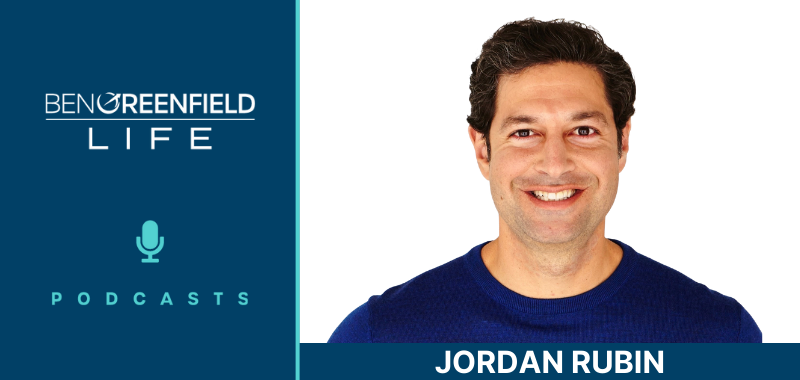

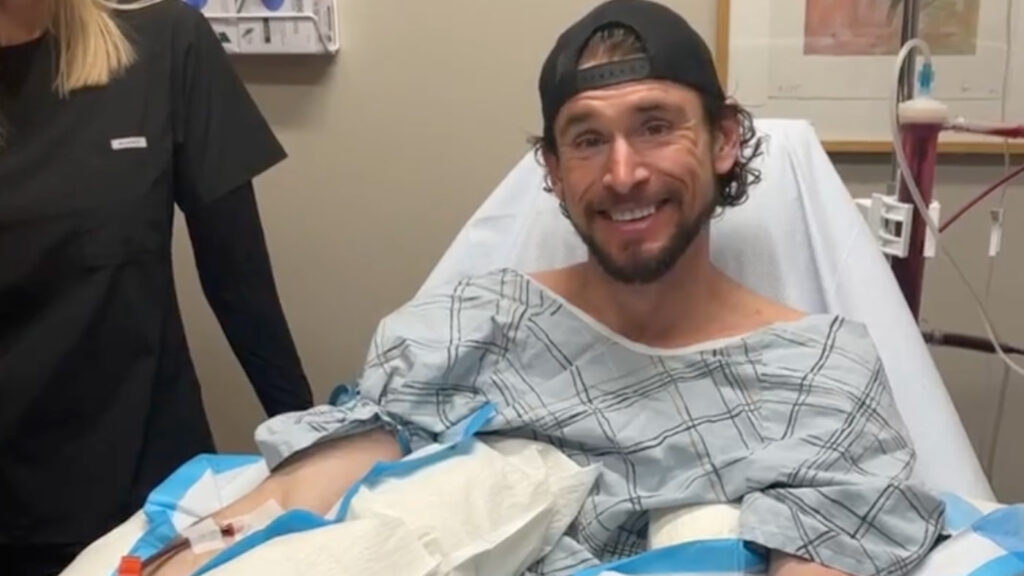
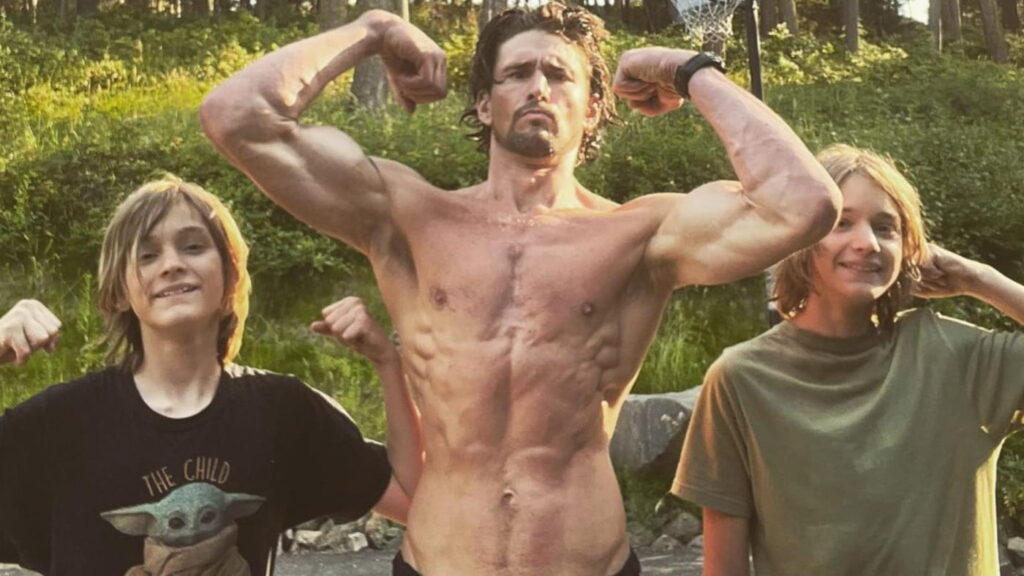
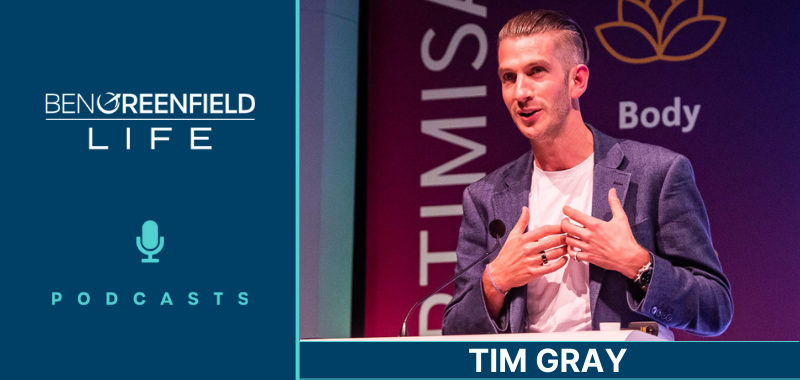

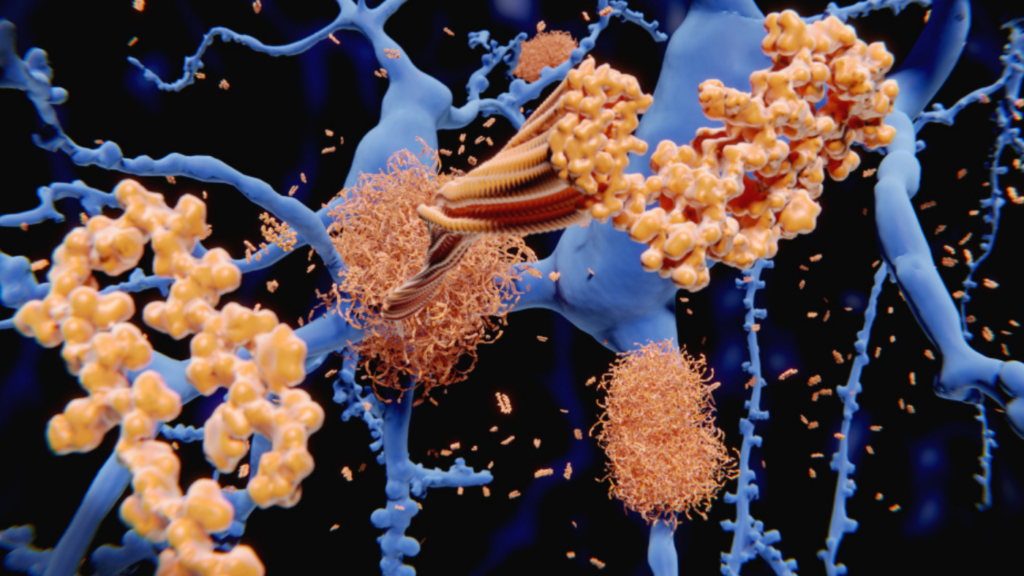

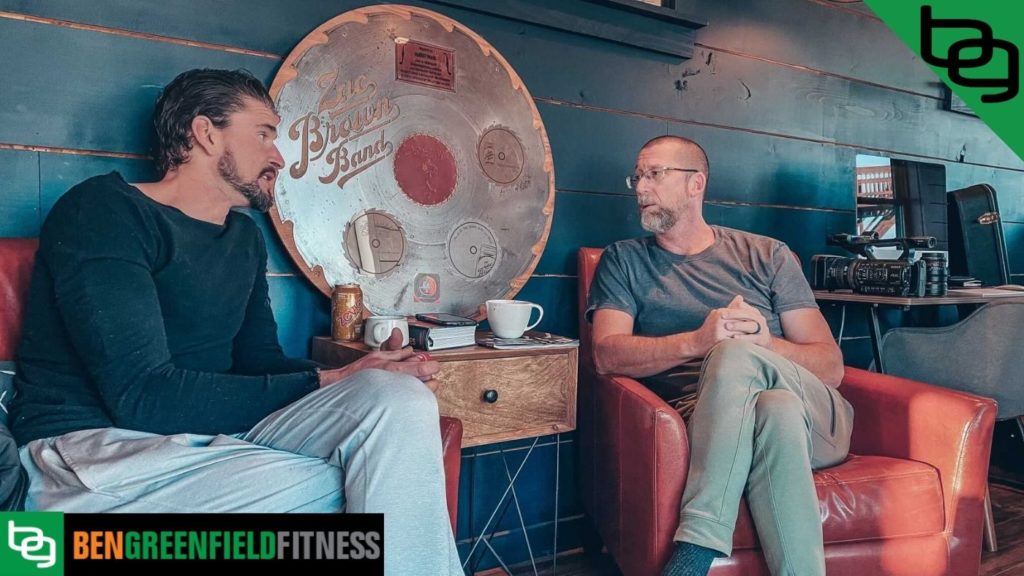
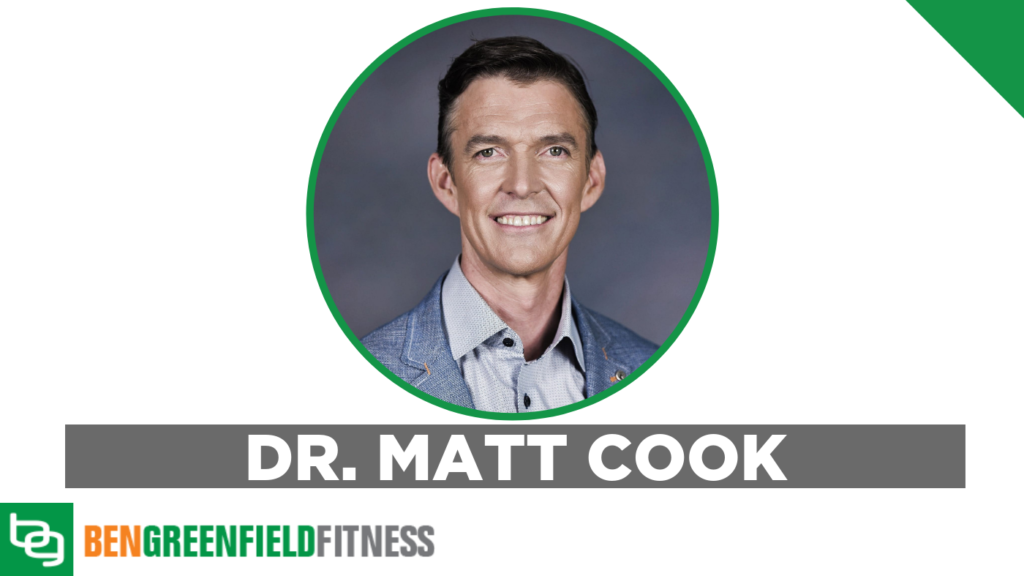

Would there be similar heath benefits to plasma donations?
Hi Ben Greenfield and Dr. Shah, thank you for this informative and insightful discussion on therapeutic plasma exchange, cholesterol, and cancer diagnostics. I found it particularly interesting to learn about the benefits of TPE and how it can remove harmful substances from the body while also replacing them with beneficial components like albumin. I also appreciated the nuanced approach to the cholesterol debate and the importance of responsible red meat choices. Your multi-faceted approach to medicine, including the use of longevity technology, is inspiring and I’m looking forward to attending your upcoming event. Thank you again for sharing your expertise with us. I really am also thankful that great and topnotch healthcare is available in this country. Much like https://www.precisionpointehealth.com/ who helped me nurse back my body to fighting fit form after I figured into an accident years back!
Regarding the subject of colonoscopies, Ben, if you’re concerned about anesthesia, I’ve now done two colonoscopies, both without ANY anesthesia. I’d read that they are done that way in Europe frequently, so I figured if the Europeans are tough enough to handle this, we rugged, can-do Americans should be able to manage as well, right? The doctor whom I went to gave me no pushback at all and said he’d done it w/o anesthesia multiple times, so what he suggested is that they put the i.v. in and have the anesthesiologist there in the room on standby to dial in the anesthesia if I became uncomfortable. The greatest discomfort is when the tube is on the way in, but since you’ve done many enemas, it should be a non-issue for you, as it’s really not any more painful or uncomfortable than an enema. After that, all you feel is some gas being displaced in your colon and pushing out at you on occasion. Feels like uncomfortable bloating. It’s very tolerable. I didn’t need even an ounce of anesthesia either time and am baffled as to why people do it with anesthesia. I think it’s just easier on the doctors not to have to worry about patients squirming, etc. (and I had no issue staying still), so they just push it on everyone as the default. Anyway, I’d strongly suggest you do what I did and have the i.v. in and the anesthesiologist present so that if it does get to be too much for you (our individual anatomies and pain thresholds are a bit different, I guess), you can have the anesthesia ready to go. The other bonus of not using anesthesia is that there’s no recovery time, so that you don’t have to wait around for a few hours after you’re done with the procedure. They take the i.v. out, and then you get up and leave.
Wow!
Hi Ben I listen to your podcast on this subject. At our clinc we do over 100 studies of coronary Angiogram with clearly and manage many patients. I also recommend before starting on zetia you should do the blood test at Boston heart lab to see if you are hyperabsorable of sterols to see if you will respond will to zetia. Also there is no need for you to do colonscopy every 2 years if you have normal initial colonscopy. You can do yearly cologaurd stool test between your colonscopy.
Ben what do you think about Dave feldman’s LMHR research? It’s super relevant to you and to this discussion about apob and pluqe. Can you please share your thoughts on this?
Awesome content as usual. I’m getting the Cleerly scan done this week.
Would there be similar health benefits to regular blood donation?